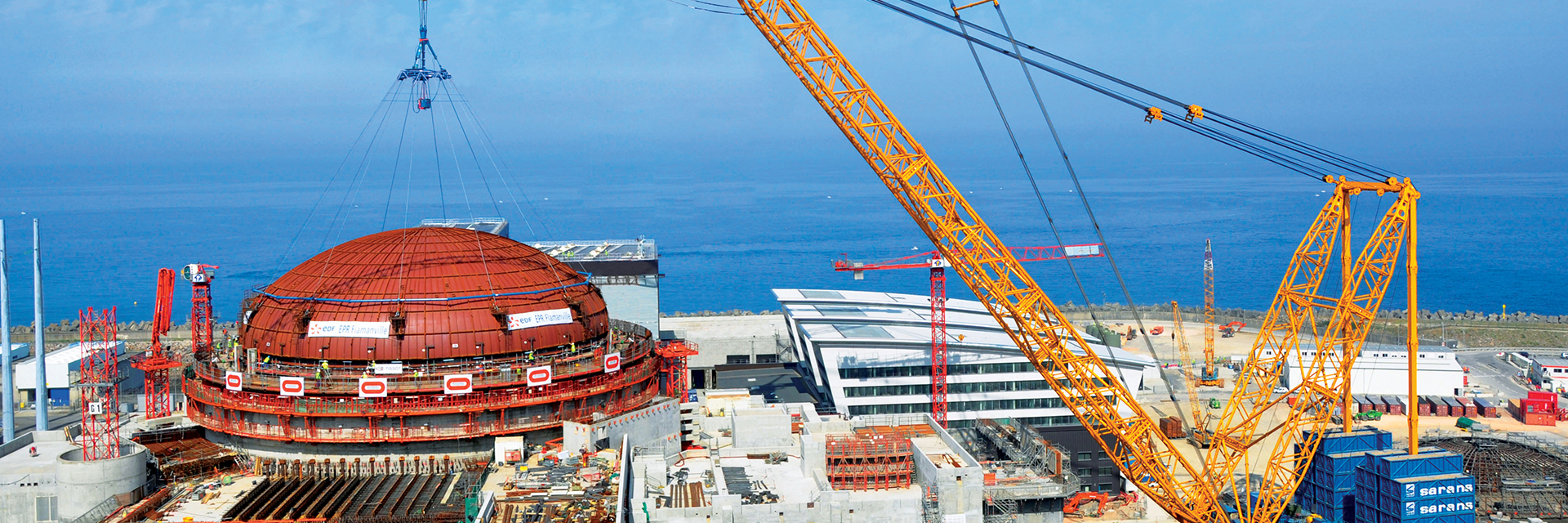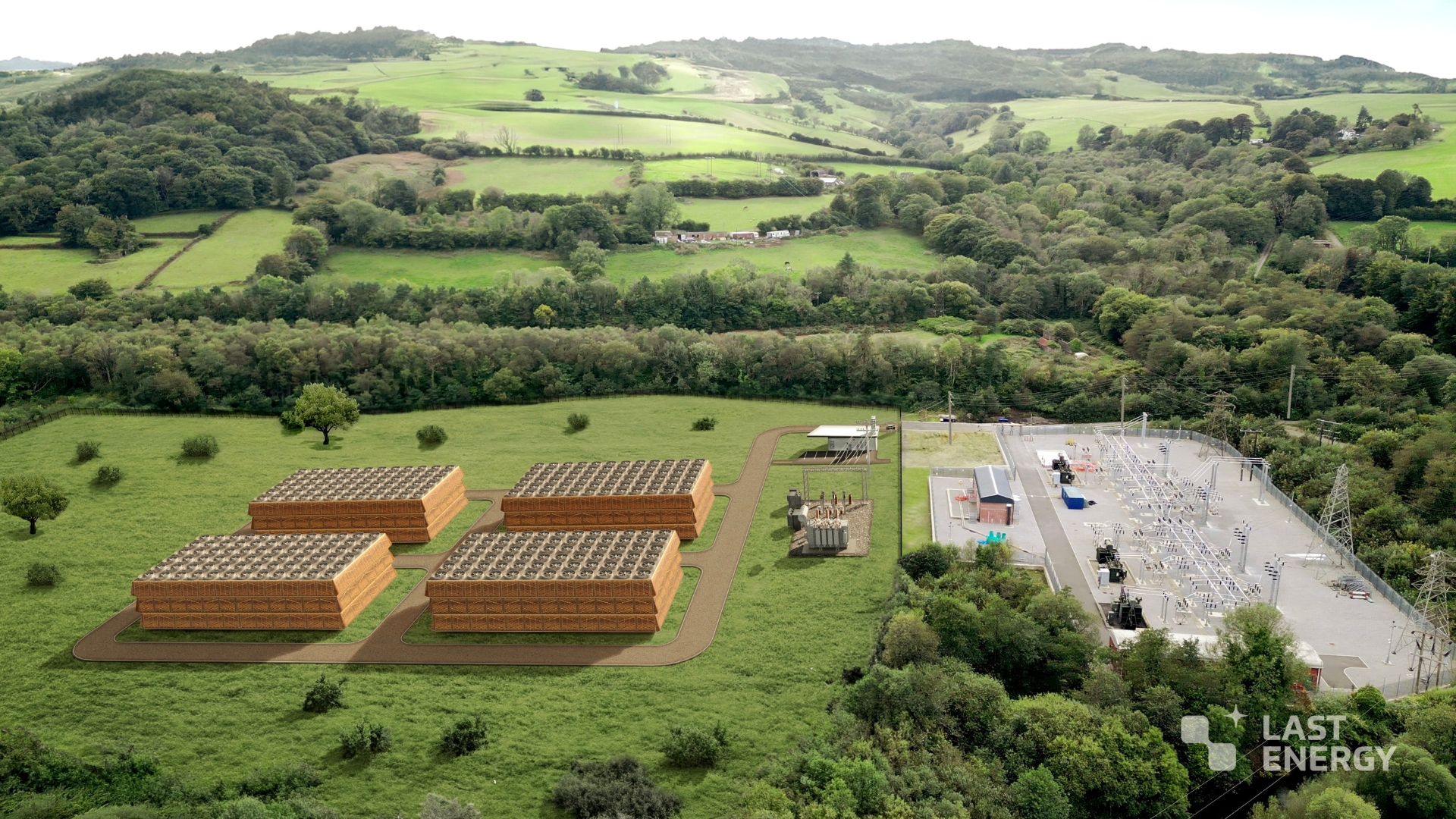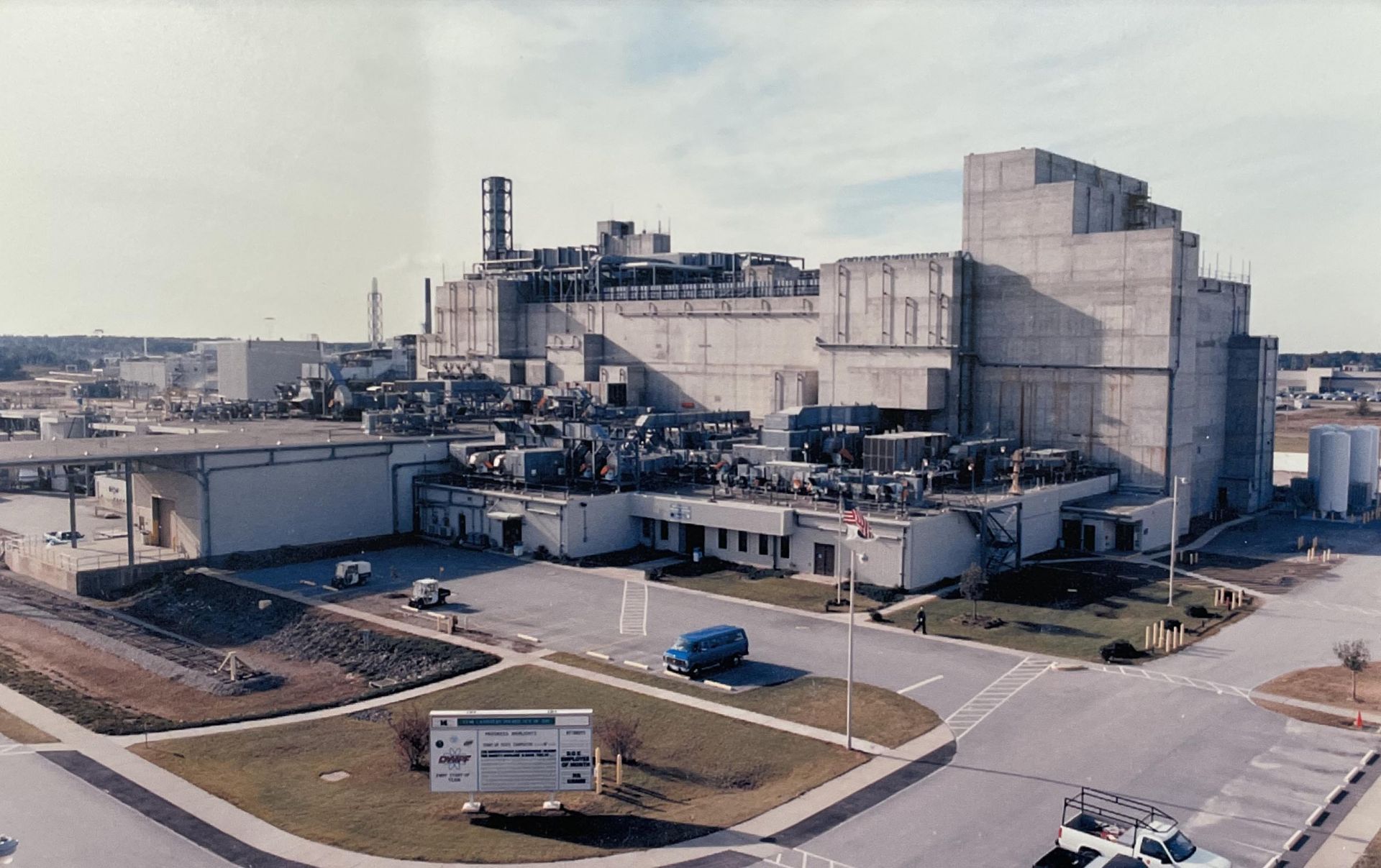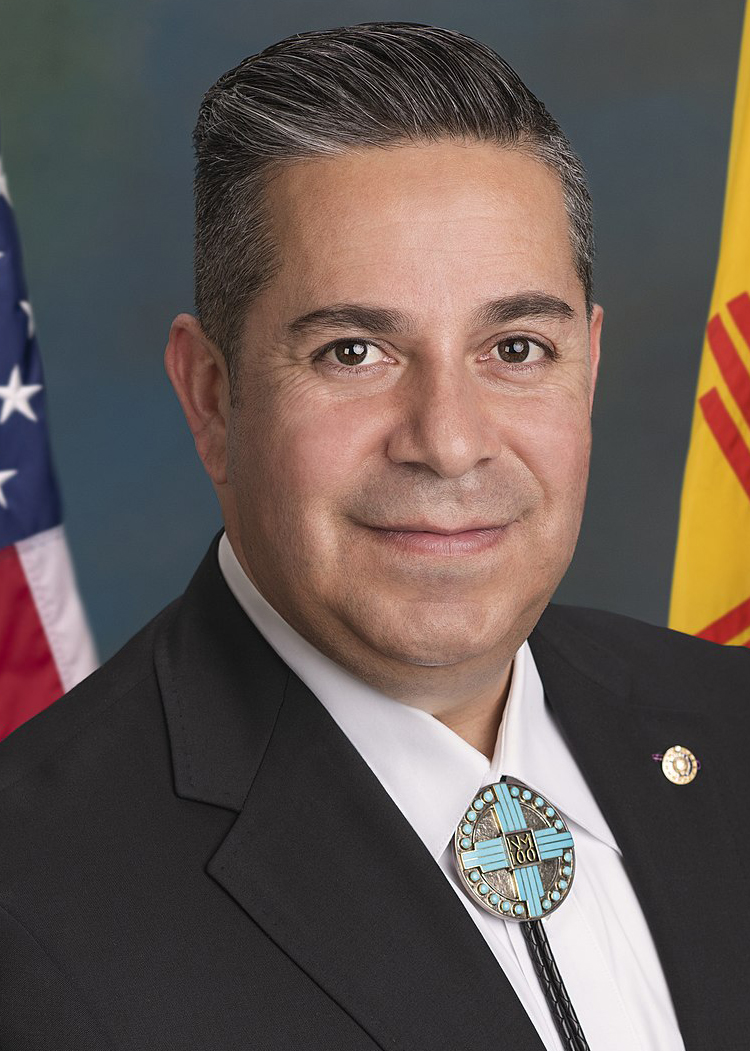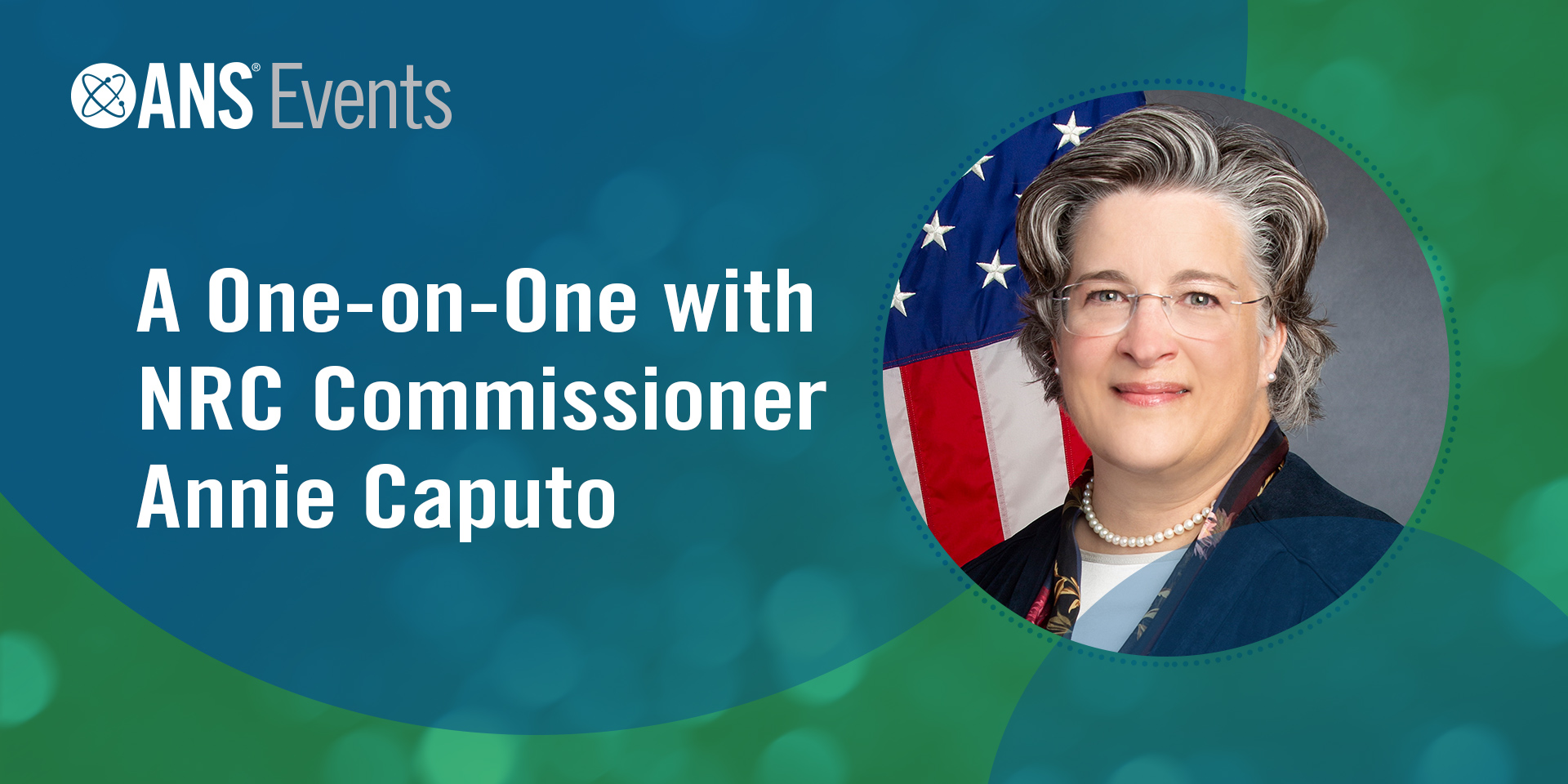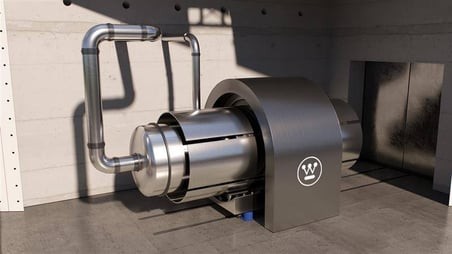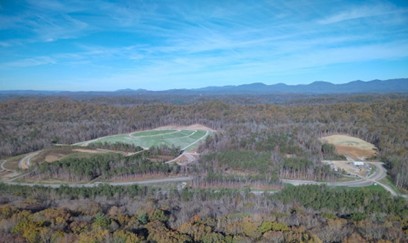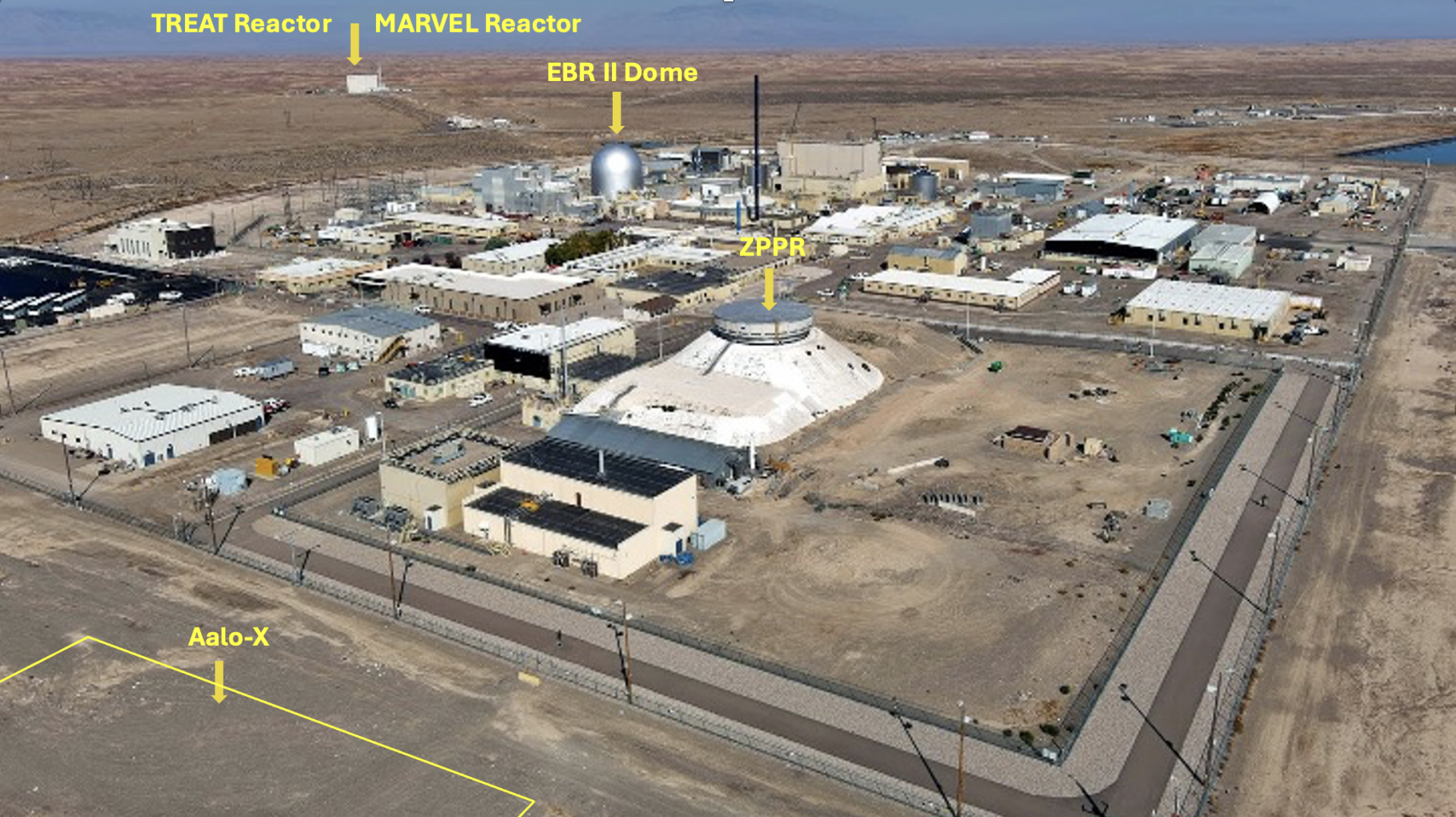Comments on the rule are being accepted until February 28
The U.S. Nuclear Regulatory Commission will host two public meetings in early January to educate and field questions about a proposed rule to allow more flexibility in licensing nuclear plants.
A set-up at a NuScale E2 Center. (Photo: NuScale)
NuScale Power Corporation this week announced the opening of its Energy Exploration (E2) Center at the Ohio State University in Columbus.
Concept art of the Llynfi Energy Project in South Wales. (Source: Last Energy)
American start-up Last Energy has received a letter of interest from the Export-Import Bank of the United States (EXIM), confirming the bank’s willingness to move forward with due diligence for $103.7 million in financing for the company’s project in southern Wales.
The Defense Waste Processing Facility at the Savannah River Plant. (Photo: SRS)
In 1989, the Savannah River Plant was renamed the Savannah River Site. It was originally established in 1950 near Aiken, S.C., to produce nuclear materials for the nation, primarily for defense purposes. The site consisted of a heavy water production plant, three fuel fabrication facilities, five production reactors, two nuclear separation facilities, waste management facilities, tritium processing facilities, and the Savannah River National Laboratory. The main isotopes produced were, by priority, tritium, plutonium-238, and plutonium-239.
At NRC headquarters are (from left) UUSA’s Gerard Poortman, Wyatt Padgett, Lisa Hardison, and Paul Lorskulsint (seated), with the NRC’s James Downs (seated), Shana Helton, Kimyata Morgan-Butler, John Lubinski, and Johnathan Rowley. (Photo: Urenco USA)
Just one day after Urenco USA (UUSA) was picked by the Department of Energy as one of six contractors eligible to compete for future low-enriched uranium task orders, the Nuclear Regulatory Commission on December 11 formally approved the company’s license amendment request to boost uranium enrichment levels at its Eunice, N.M., enrichment facility to 10 percent fissile uranium-235—up from its current limit of 5.5 percent.
Demolition work being conducted on Hanford’s REDOX facility in July 2024. (Photo: DOE)
Work to prepare Hanford’s Reduction Oxide Plant (REDOX) for decontamination and demolition has been put on hold as the Department of Energy shifts focus to higher-priority work at the nuclear site in Washington state.
IAEA director general Rafael Mariano Grossi delivered the keynote address at the Nobel Peace Prize Forum 2024 in Oslo, Norway. (Photo: D. Candano/IAEA)
Pointing to the consequences of ignoring the perils of nuclear weapons, Rafael Mariano Grossi at last week’s Nobel Peace Prize forum called for diplomacy and dialogue to reduce nuclear tensions.
Read Grossi’s full speech and watch his keynote address here.
Westinghouse’s eVinci microreactor. (Photo: Westinghouse)
Westinghouse Electric Company’s eVinci Advanced Logic System (ALS) Version 2 (v2) instrument and control (I&C) platform has received approval from the U.S. Nuclear Regulatory Commission through a final safety evaluation report on two topical reports.
The eVinci is now the first and only microreactor with an I&C system approved by the NRC, which opens a path to autonomous operation. The approvals also allow the ALS v2 platform to be used by any reactor currently in the U.S. fleet.
An aerial view of the Environmental Management Disposal Facility project site at Oak Ridge. (Photo: DOE)
The Department of Energy’s Oak Ridge Office of Environmental Management (OREM) and contractor United Cleanup Oak Ridge (UCOR) have finished fieldwork and have begun monitoring groundwater elevations for a study at the Environmental Management Disposal Facility (EMDF) project site in Tennessee.
This photo of INL’s MFC indicates a plot of land in the foreground, which Aalo says it has been “tentatively” granted by INL. (Image: Aalo)
Aalo Atomics and the Department of Energy announced yesterday that the company has worked with Battelle Energy Alliance and the DOE’s Idaho Operations Office to develop a plan—described as “provisional,” “potential,” and “tentative”—to grant Aalo a one-acre plot of land at Idaho National Laboratory site to build a new facility that would house an experimental reactor. Aalo hopes the reactor, dubbed Aalo-X, will help the company license and commercialize Aalo-1, a 10-MWe sodium-cooled reactor.
